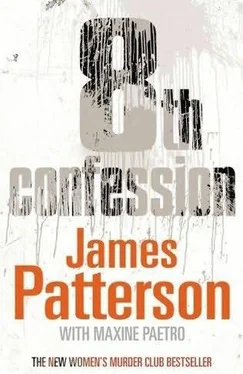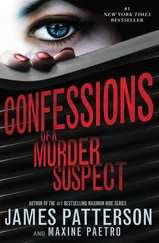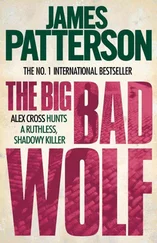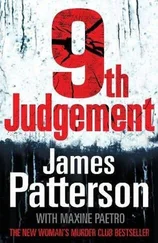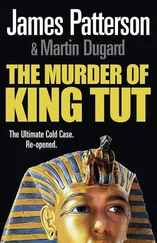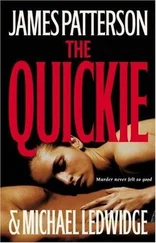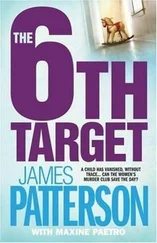And he had a family living in Santa Rosa.
CINDY SAT IN the comfortable sunroom of a million-dollar Craftsman-style house in Santa Rosa, feeling anything but comfortable. Had she been rash? Yes.
Intrusive? Absolutely.
Thoughtless? She ought to get an award for blinding insensitivity.
What had she been thinking? Of course, that was the problem. She’d been thinking about her story, not about real people, so she’d launched herself into the Bookers’ lives like a live hand grenade.
And the moment Lee-Ann Booker opened her front door, her sweet, momsy face shining with anticipation, Cindy realized it was too late to unpull the pin.
They were all in the sunroom now.
Lee-Ann Booker, a fair Clairol blonde in her midsixties, clutched a charm necklace of crosses and semiprecious stones and Mexican good-luck charms. She sat beside Cindy on the rattan sofa, sobbing into tissues, hiccuping and sobbing again.
Her husband, Billy Booker, brought Cindy a mug of coffee.
“You sure you don’t want something stronger? ” he asked. It sounded like a threat.
Booker was black, also in his sixties, with a military bearing and the lean body of a dedicated runner.
“No thanks, I’m good,” Cindy said.
But she wasn’t.
She couldn’t remember any time in her life when she’d caused anyone so much pain. And she was also very afraid.
Booker took the chair opposite the sofa, leaned forward, rested his elbows on his knees, and scowled at Cindy.
“What makes you think that this ‘Bagman Jesus’ is our son?”
“A woman saying she was his close friend gave me this,” Cindy said. She dug in her purse, pulled out the tin ID tag stamped RODNEY BOOKER on one side, PEACE CORPS on the other. She handed it to Booker, saw a spasm of fear cross his face.
“Is this supposed to prove something? Mother and I want to see his body.”
“No one claimed him, Mr. Booker. He’s at the ME’s office. Uh, they don’t show bodies there, but I can make a call -”
Booker sprang out of his chair and kicked a rattan footstool across the room, spun back around to face Cindy.
“He’s in a freezer like a dead fish, that’s what you’re saying? Who tried to find us? No one. If Rodney was white, we would have been notified.”
“To be fair, Mr. Booker, this man’s face was beaten beyond recognition. He had no ID. I’ve been working hard to learn his identity.”
“Good for you, Miss Thomas. Good for you. His face was busted up and he had no ID, so I’m asking again, how do you know that dead man was our son?”
Cindy said, “If I could have a good, clear photo of Rodney, I think I could clear this up fast. I’ll call you tomorrow.”
Lee-Ann Booker eased a photo out from the clinging plastic leaves of an album and passed it to Cindy, saying, “This was taken about five years ago.”
In the picture, Rodney Booker was sitting on the same rattan love seat Cindy sat on now. He was handsome, light-skinned, broad-shouldered, had close-cropped hair and a beautiful smile.
Cindy strained to find a resemblance to Bagman Jesus in Rodney’s build and skin color, but when she’d seen Bagman’s remains, he’d barely looked human.
“You’ve been to Rodney’s house?” Billy Booker asked.
“Rodney has a house?”
“Well, damn it, girl. My son could be home right now watching a ball game while you’re out here scaring us to death. ”
Lee-Ann Booker wailed, and Cindy’s mind scrambled again. House? Bagman Jesus was homeless, wasn’t he? How could he have a house? What if Rodney Booker was alive and well – and she was totally wrong?
Billy Booker snatched a pen and notepad from the coffee table, scratched his son’s cell phone number and address on the top sheet, ripped it off and handed it to Cindy.
“I get his voice mail when I call. Maybe you’ll do better. So what’s your plan, Miss Thomas? Tell me that. Then I’ll know what I’m going to do.”
Cindy left the Bookers’ house, sure that her well-intentioned pop-in visit had not only blown up but shown all the signs of becoming a scandal.
AS SHE DROVE BACK from Santa Rosa to San Francisco, Cindy obsessed. She’d promised the Bookers she’d let them know tomorrow whether or not Bagman Jesus was their son.
How was she going to do that? How? And yet she would have to do it or die trying.
She stirred the contents of her purse with her right hand, found her cell phone, and speed-dialed Lindsay’s office number. A man’s voice answered, “Conklin.”
“ Rich, it’s Cindy. Is Lindsay there?”
“She’s out, but I’ll tell her -”
“Wait, Rich. I’ve got a solid lead on Bagman Jesus. I think his name is Rodney Booker.”
“You doing police work now, Cindy?”
“ Someone has to.”
“Okay, okay. Take it easy.”
“Take it easy? I just walked in on this unsuspecting old couple, told them their son was dead -”
“You did what? ”
“I had his name, Rich, or thought I did, so I went to interview Bagman’s parents, logical if you think about it -”
“Oh man. How’d that go over?”
“Like a bomb, like a freaking bomb. Billy Booker, the father? He’s a Vietnam vet, former sergeant major in the marines. He’s saying the police are racist, that’s why they didn’t work the case.”
“Bagman Jesus was black?”
“Booker has Al Sharpton’s home number and he’s threatening to use it. What I’m saying is, I’ve got to get ahead of this story before I become the story. Before we become the story.”
“We, huh?”
“Yeah. The SFPD and me. And I’m the one who feels the moral obligation. Rich, listen. Rodney Booker has a house. ”
“You’re losing me, Cindy. Wasn’t Bagman homeless? ”
“Look him up. Please.”
“Entering ‘Rodney Booker.’ Here ya go. Huh. Cole Street. That’s off Haight. Nice neighborhood.”
It wasn’t.
It was the badlands, the turf of small-time drug dealers.
And that made sense.
If Bagman Jesus wasn’t lying when he told Flora Gold that his real name was Rodney Booker, and if Flora wasn’t lying to Cindy, then the house on Cole could turn out to be where Rodney Booker, aka Bagman Jesus, had hung his bag.
Cindy said to Conklin, “Can you check it out, Rich? Because if you won’t, I’ve got to.”
“Stand down, Cindy. My shift is over in twenty minutes. I’ll run over and take a look.”
“I’ll meet you there,” said Cindy. “Wait for me.”
“No, Cindy. I’m the cop. You wait for me. ”
THE HOUSE ON COLE was painted roadkill gray, one in a block of distressed Victorian homes, this particular residence having boarded-up bay windows, trash-littered front steps, and an air of melancholy that had not lifted since the end of the ’60s.
“It’s condemned,” Conklin said to Cindy, tilting his chin toward the notice nailed to the door.
“The lot alone is worth some dough. If this house belonged to Bagman, what made him homeless?”
“That’s rhetorical, right?”
“Yeah,” Cindy said. “I’m thinking out loud.”
Cindy stood behind Conklin as he knocked on the door, touched the butt of his gun, then knocked again, this time louder and with meaning.
Cindy’s hands were shaking as she cupped them and peered through a sidelight. Then, before Conklin could stop her, she pushed in the door.
Читать дальше
